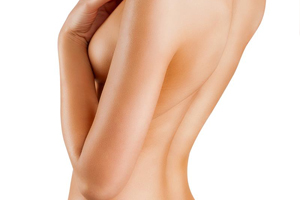Microdermabrasion is a cosmetic treatment process that exfoliates the skin to remove dead skin cells and encourage rejuvenation. This is the same process used when you wash your face at home with an exfoliating cleanser. The difference after microdermabrasion is the level of abrasion, which is much deeper and more precise.
Regular exfoliating cleansers you use at home often contain microbeads, which normally consist of pieces of apricot seed or even oatmeal. They are more gentle, and thus, better suited to weekly or even daily use. In professional microdermabrasion, a wand-like tool is used to remove the top layer of dead skin cells by blasting the face with tiny aluminum oxide or sodium bicarbonate crystals.
The Benefits of Microdermabrasion
Although the microdermabrasion process may sound harsh, it is far less invasive than injectables, chemical peels, or surgery. It’s an excellent first option for people who want to look and feel more youthful.
Because it is minimally invasive, microdermabrasion also has a much shorter recovery rate – shorter than even the more intensive dermabrasion. In fact, most people require no anesthetics and experience only mild pinkness and swelling for the first 24 to 48 hours. If they have any pain, it’s similar to having a sunburn.
This type of treatment is also beneficial because of how much it can treat. It’s primarily used to address dull, tired skin, brown spots, and age spots. In patients who have an uneven skin tone, it may also help to brighten the skin and make it appear more youthful. This is because older, dead skin cells tend to develop a dull appearance, whereas new skin cells are more translucent and reflective of light.
Is it Right for You?
Because every patient is different, we can’t tell you if microdermabrasion is right for you from a blog alone. However, it is right for the vast majority of otherwise healthy patients who have fairly to very light skin.
The biggest drawback of microdermabrasion is that it isn’t generally recommended for patients with darker skin tones. It can cause scarring, skin lightening, and permanent discoloration in these populations.
Patients who have a history of severe acne, Psoriasis, Eczema, Rosacea, and other chronic skin disorders may also be unsuitable for microdermabrasion. The same is true for people with extremely sensitive skin.
Considering microdermabrasion for yourself? Visit your local aesthetics clinic for an assessment. A qualified treatment provider like Berlet Plastic Surgery can help you find the best solution for your skincare concerns, whether that’s microdermabrasion or something else entirely.



